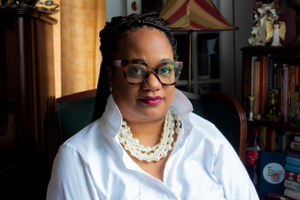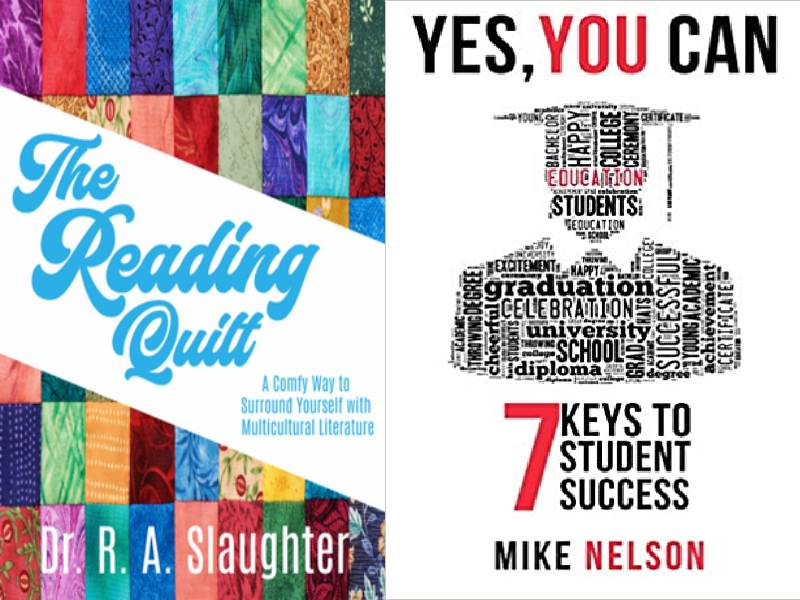Since only 2 percent of the teachers in American schools are Black males, the phenomenon is playing out in provocative headlines. If you Google the term “Black male teachers,” a bevy of articles about the shortage of this population will appear.
In 2021, The National Education Association, published an article by Sundjata Sekou which explains, “Why We Need More Black Men in the Classroom.”
Chandra Thomas Whitfield shined a positive spotlight on several Black male teachers while highlighting the Future Minority Male Teachers Across California Project (F2MTC)
in her 2019 article which appeared in “The Undefeated.”
In 2015, Travis Bristol summarized his study on the school-based experiences of 27 black male teachers across 14 public schools in Boston. His article titled “Black Male Teachers: There Aren’t Enough of Them,” was published by “The Washington Post.”
In many ways, we mourn the loss of the Black man’s brilliant mind in the classroom. There was a time when Black male scholars received much respect and well-deserved accolades for molding young minds in and outside of the classroom. History is proof that men of color represent a group with a complicated place in the profession that was once revered.
There is a part of African American history that is violent and turbulent. Enslaved Black people fought valiantly to learn literacy skills which could, in many ways, help them navigate a road to freedom. Men like Frederick Douglass, an American abolitionist, who escaped slavery, inspired a generation of Black men who staunchly protected the literacy skills of enslaved and free Blacks encouraging men to study and become scholars, a way to earn status and high esteem in the African American community. Inspired by Douglass, dozens of African American men founded pioneering academic institutions, and ignited an apotheosizing of African American male scholars who demanded stories of marginalized people be told. During the Reconstruction period, as formerly enslaved Blacks were learning to live as free people, educators like David B. Simons taught Black people to read and answer the prayers of formerly enslaved people who gave their lives for the right to learn.
If the history of African Americans is abundant with scholars like Booker T. Washington, Edward Bouchet, and George Washington Carver, who in many ways were literacy heroes or advocates for the sake of the survival of Black folks, why did African American men drop the academic baton in favor of other industries? One prominent reason is Black male teachers, in American urban schools where they are concentrated, are asked to police black students who act out from feelings of academic low self-esteem, trauma-induced anxiety, and imposter syndrome.
Mike Nelson, author and motivational speaker, has vowed to help students break free of these debilitating feelings which often make them a menacing and opposing force in the classroom.

Each month “The Reading Quilt” provides a short review of a book that a teacher may use to spark conversations about culture and race, along with a learning activity that may help students understand human behavior. Using the acronym QUILT, Slaughter offers readers information about the Quality of writing, Universal theme, and Imaginative plot, as well as a mini Lesson plan, and Talking points that stem from the book’s premise. This month features a book that encourages young people to achieve academic greatness in any discipline. This may be the book that motivates a young scholar to explore the history of African American men in the teaching profession and take up the mantle of teaching.
Mike Nelson

(Image Source: https://mikenelsonspeaks.com)
Ironically, a kid who hated school while growing up in Philly, is now the man who sparks young people’s passions and motivates them to find the inner strength to accomplish their goals. When speaking to his audiences, Nelson tells the truth: He was the kid who despised high school, stumbled into college, and skirted by with a dismal 1.9 GPA. Through the experience of academic failure, Nelson figured out the formula to school success which he calls “The Seven Keys to Student Success.”
Quality: Using transparent, and poignant anecdotes, Mike engages readers with the truth of his young adulthood: He was not interested in school, but he matriculated to college anyway. However, it wasn’t until his second year of college that the light switched on.
Universal theme: If you know the keys to academic success, set goals, and persevere, you can succeed in school which can become the stepping stone to a prosperous future.
Imaginative: Peppered throughout the book are quotes in huge type that shout Mike’s warnings and advice like, “The decision to quit is often easier than the decision to keep going,” and “Become married to your academic goals.” Also, Mike offers blank charts and spaces to answer questions and reflect on various ideas. You are pushed to answer the question, “What areas in your life do you lack responsibility?”
Lesson Plan: History is jam-packed with stories of African American men who sought the classroom as a platform to educate and uplift the African American community. We should not overlook the present-day heroes who are following in these men’s footsteps. People like Kelly Miller, mathematician and Civil Rights activist; Edmund Gordon, who fought to close the achievement gap; or Nathan Hare, who founded the first Black Studies Program should never be forgotten. We must also uplift the modern-day Black man who is currently inspiring young Black minds through mentorship programs, sports, and other venues – These people include Akil Parker, math professor and founder of “All this Math;” Mike Cook, Friends’ Central High School varsity boys’ basketball coach and mentor; Hilderbrand Pelzer III, principal and author of Unlocking Potential: Organizing a School Inside a Prison; Vaughn T. Rex, professor and mentor; David Pringle, Higher Education Administrator and counselor; Thomas Butler, founder of Thomeducates, LLC and college access counselor; Grand Hank, scientist and founder of Grand Hank Productions Inc. and mentor; Dr. Michael E. Coleman, Jr., administrator at Camden School District; Sharif El-Mekki, Chief Executive Officer The Center for Black Educator Development; and Malcolm Mitchell, founder of Read With Malcolm Youth Literacy Initiative.
Teachers, plan lessons that help your students explore the lives of young African American men who are influencing young minds. Consider these resources:
Talking Points:
- In what ways do you benefit from having an African American male teacher?
- Who are the African American male leaders in your community?
- In what ways can you encourage Black men to become educators?

Dr. R. A. Slaughter’s (Doc) textbooks Turning the Page: The Ultimate Guide for Teachers to Multicultural Literature, and Turning the Page: A Guide to Securing Multicultural Literature for Schools, both published by Rowman & Littlefield and available in all bookstores, have brought Doc global recognition. For more information, log onto drrachelslaughter.info, or email LiteracyUniversity@gmail.com





